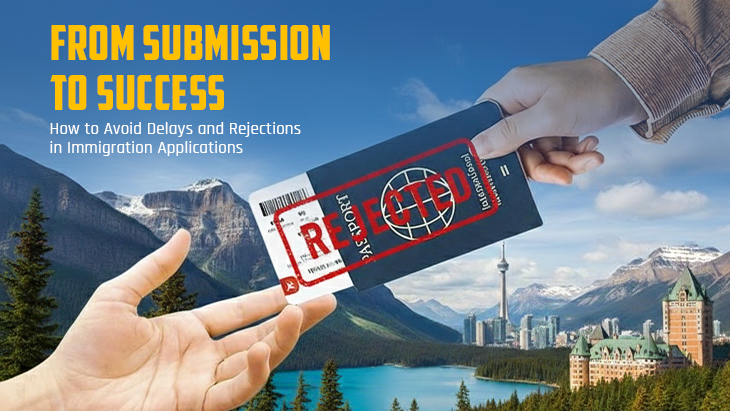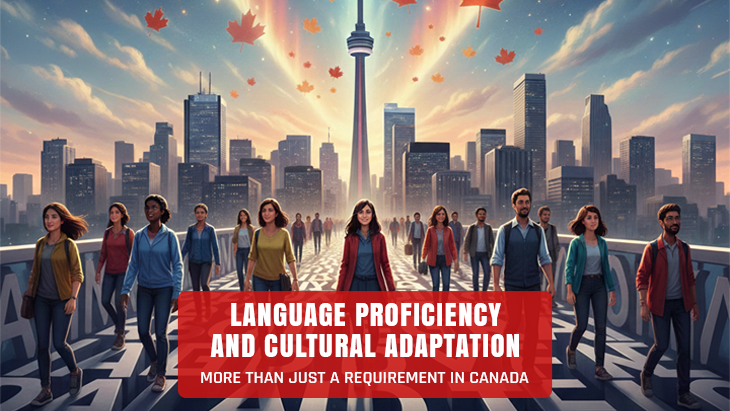When it comes to job and study opportunities, Canada is very productive. Individuals from various streams can choose from many job opportunities, and the combination of advancement opportunities and compensation packages makes these positions more rewarding. Furthermore, obtaining Permanent Residency (PR) status is the best way to relocate to Canada.
One of the most outstanding benefits of Canada's Permanent Residency (PR) status is the ability to live, work, and study in Canada anywhere. Some people go for a work grant/temporary visa in order to avoid desk jobs. It may look easier at first. It does not, however, provide long-term benefits. The benefits of PR status include free medical services, free training, and the ability to work for tourists in the long run.
Because of the strong linkages between India and Canada, immigration to Canada is now quite simple and popular, owing to a better day-to-day environment and a higher standard of living. Workplace cultures in Canada are diverse, similar to those in India. As a result, a number of Indians find it easier to relocate to Canada and hunt for work because their skills are comparable.
Many people relocate to a location recognized for its chances for professional development, & so a guarantee of a quality job can be crucial from both an individual and professional standpoint.
Furthermore, outside of fields where Indians have a high emphasis like IT, finding a new line of employment is quite confusing and frequently calls for a significant amount of effort.
What is a Work Visa in Canada?
Many people refer to the Canada Work Visa as the Canada Work Permit. The Canada Work Visa allows Indian passport holders to live and work in Canada for a set period of time under certain conditions. Candidates can apply online or offline (through the paper) on the basis of their needs and preferences. Candidates must present the application structure and explicit documents, depending on the program. Only the approved bosses in Canada are allowed to hire foreign workers.
Obtaining a credential from a recognized learning institution in Canada is an excellent option for individuals who wish to work and live in Canada. You might want to work in Canada at some point throughout your studies. Depending on where you are in your program, the procedure for converting your study visa to a work permit will be different.
You may make money while learning.
If you are enrolled full-time at a Canadian educational institution, you may be eligible to work part-time or even full-time in some cases.
Holders of a study permit are allowed to work up to 20 hours per week or full-time during a set period of time. You must however, indicate on your study visa that you are eligible to work in Canada. You can request that your study permit be modified if you are qualified to work, but your study permit does not state that you are allowed to work or accept employment in Canada.
Several Canadian educational institutions require students to perform a co-op or internship work placement as part of their program of study. If you meet the necessary requirements for a co-op or intern work visa, you may be permitted to work.
You can apply for a work permit once you have completed your education.
After completing a credential at a designated learning institution, you may be eligible to apply for a post-graduation work visa (DLI). International students who graduate from a DLI are qualified for a three-year post-graduation work permit.
An advantage of a post-graduation work visa is that it is not bound to any specific company, occupation, or location. An open work permit is another term for this situation. With an open work permit, you can work in any job, anywhere in Canada.
To apply for an open work permit, you must wait 180 days after completing your schooling. You can submit a post-graduate work visa application from anywhere in the world or within Canada.
You can get a work permit before completing your learning.
If you decide to stop studying in Canada before finishing your credential, you will need a Labour Market Impact Assessment (LMIA) to get a work visa in Canada. It requires locating a genuine Canadian job offer from a company willing to help you with your work visa application by securing an LMIA.
An LMIA proves that the Canadian employer did not find a permanent resident or citizen to fill the post. People who have closed work permits have less mobility than people who have open work permits. In contrast to the open post-graduate work visa, a closed LMIA work permit is bound to a particular firm, role, and location.
It is critical to understand that once your studies are over, your study permit will not be valid anymore. As a result, you must inform Immigration, Refugees, and Citizenship Canada (IRCC) of your decision to stop studying. You must leave Canada while your work permit application is processed if you do not have legal status in the country.














Post Comments